Should Employers Monitor Their Employees? Ethical & Legal Considerations!
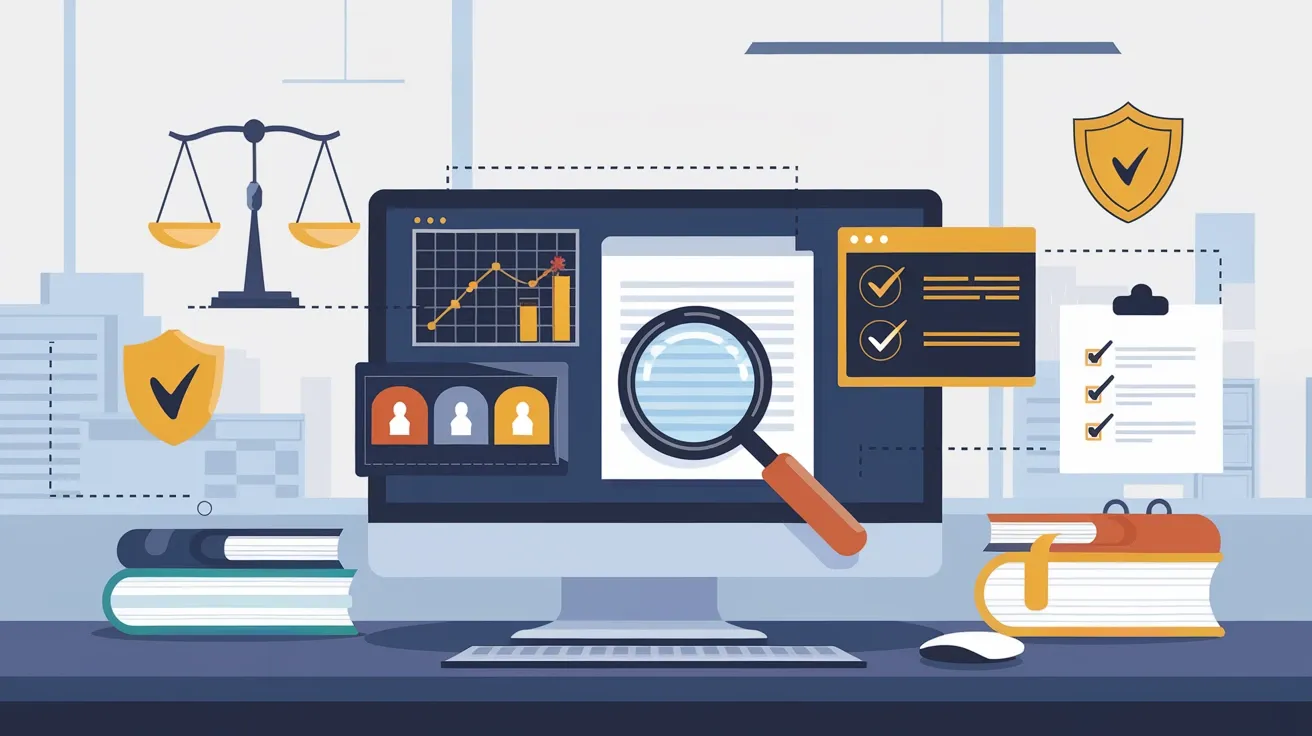
Summary:
-
Employee monitoring boosts productivity, protects company data, and ensures compliance, but excessive surveillance can harm trust and morale.
-
Ethical and legal considerations require transparency, fair policies, and clear communication while maintaining accountability.
-
A balanced approach with clear guidelines, and employee consent helps create a positive and productive work environment.
I get it—employee monitoring is truly tricky! You want to keep productivity high but never create a workplace of mistrust! I remember the time when I even second guessed— should I even monitor or not?
But the fact is that employers can and should monitor their employees to enhance productivity, security, and compliance. Here’s the catch - it should be done with balance! Too little monitoring can cause productivity issues, and too much will invade employee privacy.
So, how do you get it right? To help you more with the query, today I’ll discuss:
- Why you should consider employee monitoring?
- Potential risks involved in employee monitoring
- How much monitoring becomes excessive
- Best practices for responsible monitoring
Read on!
Why Should Employers Consider Monitoring Their Employees?
Of course, employee monitoring isn’t about spying on your employees! It serves a greater purpose- enhancing efficiency & thus ensuring business success!
The American Management Association shows that 80% of major companies monitor employee internet, phone, and email use.
Perhaps that’s because so many professionals recognize how beneficial employee monitoring is!
It Increases Productivity and Fights Disengagement
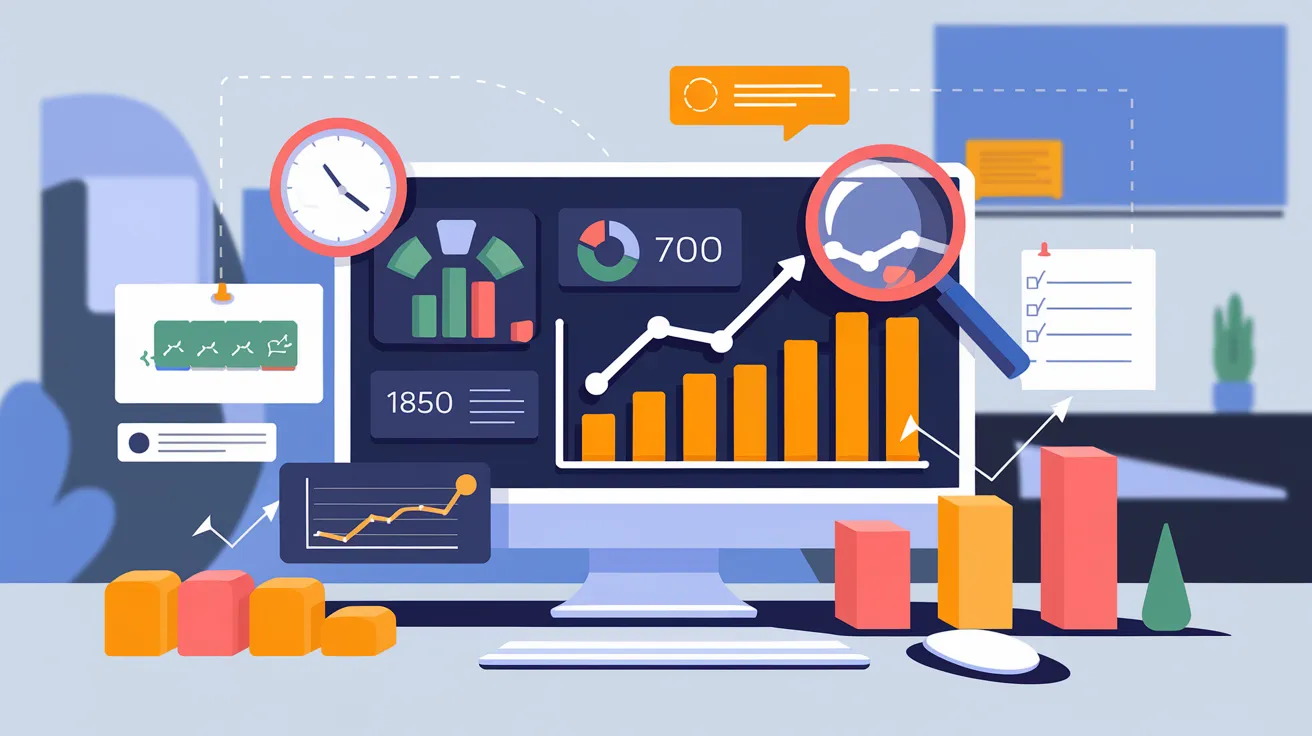
Your business and its future success totally depend on the quality of work your employees produce.
And as an employer, you’re responsible for ensuring smooth operations to deliver high-quality services.
Here, your workplace productivity tracking makes sure that your employees stay on task during work hours and efficiently use company resources.
Performance analytics also allows you to identify the bottlenecks and enhance workflows.
When the employees know their activity is being monitored, it encourages employee engagement and focus.
Ultimate result? Enhanced productivity, on average by 22%, according to another American Management Association study.
Monitoring Protects the Company's Data
Company data — customer records, private business files, or account login information—is highly sensitive information for any business.
Obviously, you can’t afford to lose it in the hands of the wrong people.
Your tracking of the employee's internet usage, logging access, or file sharing minimizes the risk of insider threats or cybersecurity risks.
Major companies also implement monitoring tools to ensure compliance with data security and data protection regulations.
45% of companies in the United States have fallen victim to unauthorized digital access, and 98% of companies feel vulnerable to insider attacks.
It Improves Performance and Accountability
Employee monitoring can profoundly impact how employees manage their time and approach their work. Time-tracking tools and performance metrics evaluate employee productivity efficiently.
This transparent record of work can help you track progress and identify potential risks early on. Ultimately, it ensures that everyone is pulling their weight.
You can also make informed decisions about workload distribution and workplace efficiency with effective monitoring.
Even the research says that 65% of companies saw an increase in employee accountability with their more mindfulness of work after monitoring system implementation.
Use Apploye to monitor employee performance effectively.
It Avoids Misconduct and Breaches of Policy
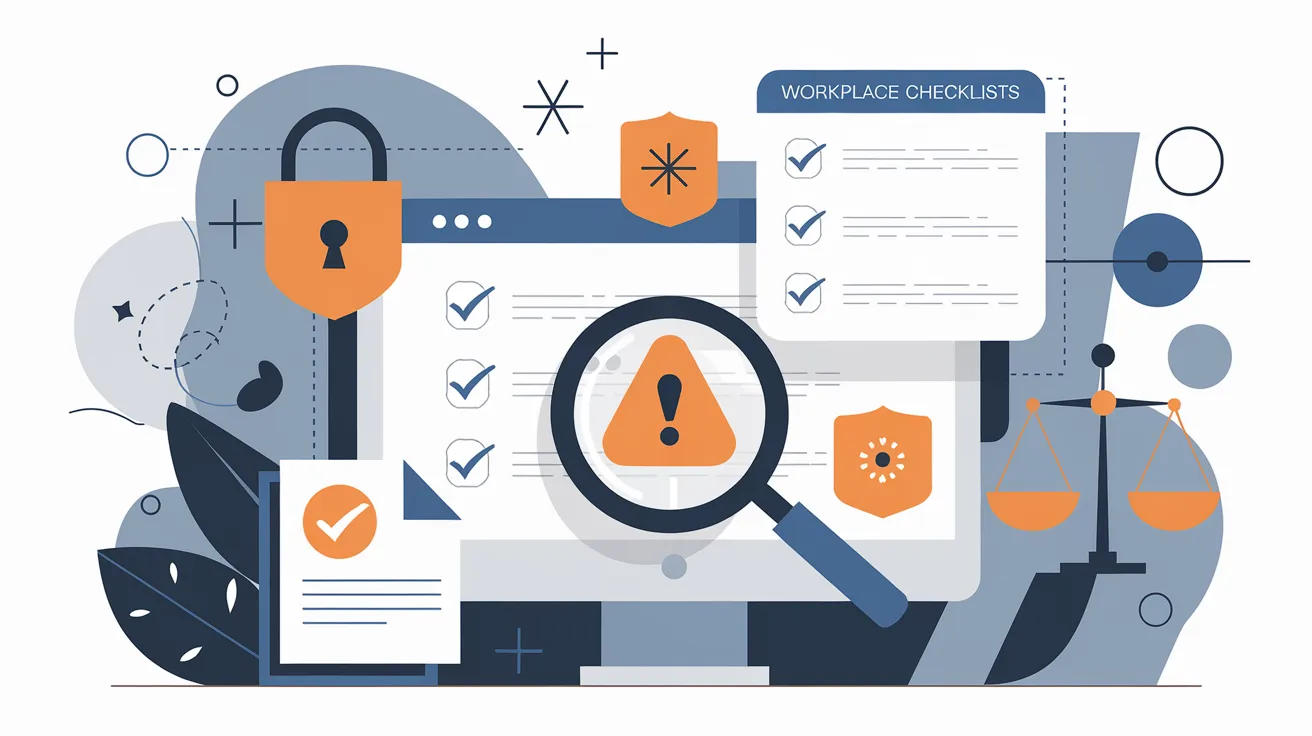
With employee monitoring, you’re not just keeping an eye on employee productivity. You can also prevent policy violations and HR compliance issues.
I’ve found that employees are more likely to follow the company policies and workplace ethics when they know there are checks.
The use of different monitoring methods helps to minimize the incidents of fraud, harassment, or violations of policies.
For example, email and chat message monitoring during work hours prevents security threats and inappropriate workplace behavior.
Further Read: Employee Email Monitoring (Guide & Tool)
Ensures Compliance with Company Regulations
Companies, especially legal services, healthcare, finance, and telecommunications, are subject to strict regulations.
It requires the companies to track and store employee communication for data protection and privacy.
In this regard, monitoring helps you to ensure compliance standards and avoid legal penalties.
For me, employee monitoring isn’t about micromanaging- instead, it’s about creating a productive workplace. Monitoring creates a work environment where each and everyone understands the rules and feels accountable.
It Protects the Company's Resources and Reputation
Employee monitoring also helps to protect the company resources. Resources like confidential data or intellectual property are invaluable.
Monitoring ensures fraud prevention, unauthorized access, or the misuse of the company resources.
That’s not it! You can also safeguard your brand reputation. Even a single compliance issue or data breach can erode customer trust overnight.
Studies say that 60% of small businesses have closed their doors within just six months due to cyberattacks!
Obviously, that’s a risk no one dares to take. With monitoring, you can ensure workplace ethics and compliance.
It Optimizes Remote and Hybrid Work
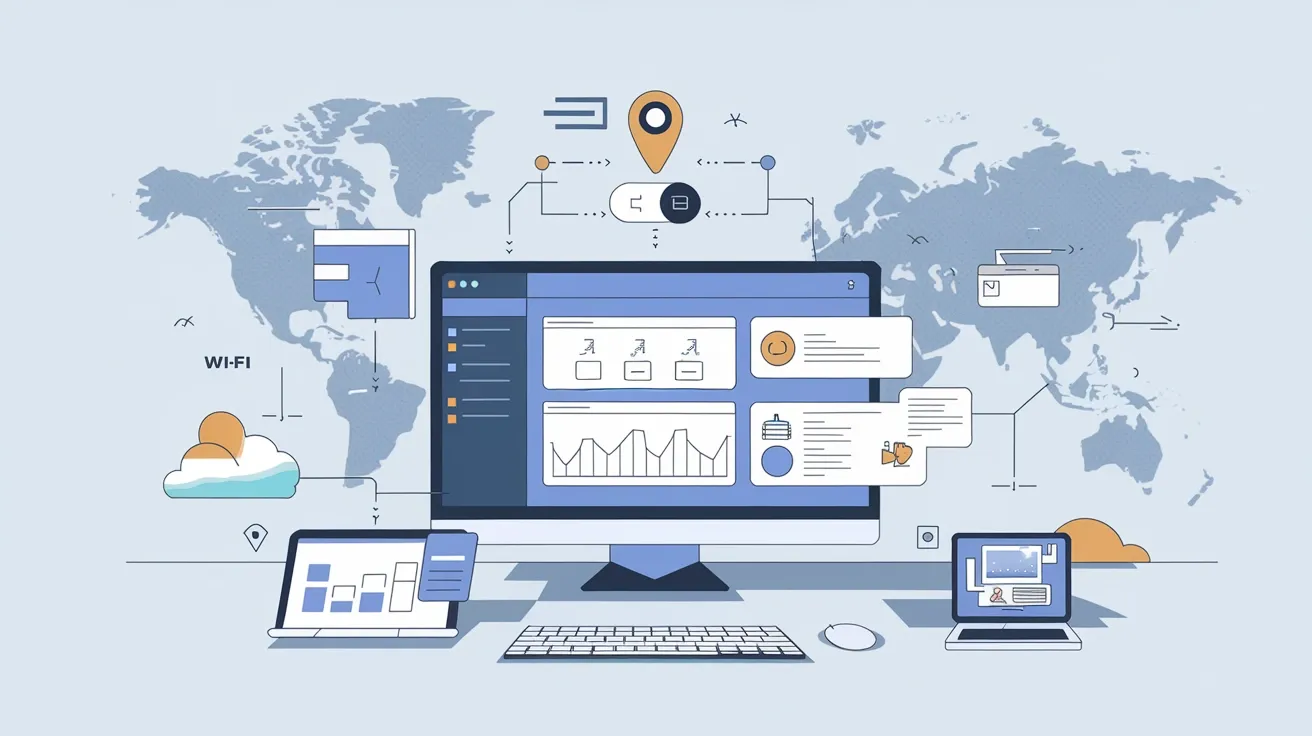
With the rise of remote and hybrid work, I believe digital monitoring tools have become more relevant.
I’ve seen businesses how they experience a slip in productivity when they have teams in different locations. However, monitoring keeps productivity on track and tackles hybrid work challenges.
Further read: How to Calculate Productivity in Business
Remote employee tracking allows companies to ensure workers are engaged and productive.
Monitoring here has also got a plus point for the employees. They can stay focused and avoid distraction as they know their work is being tracked.
What Are The Potential Risks Of Employee Monitoring?
Have you ever thought about what happens when you don’t ensure good workplace surveillance ethics? Simply, it raises privacy concerns and harms employee morale. Learn more below.
Violation of Employee Privacy
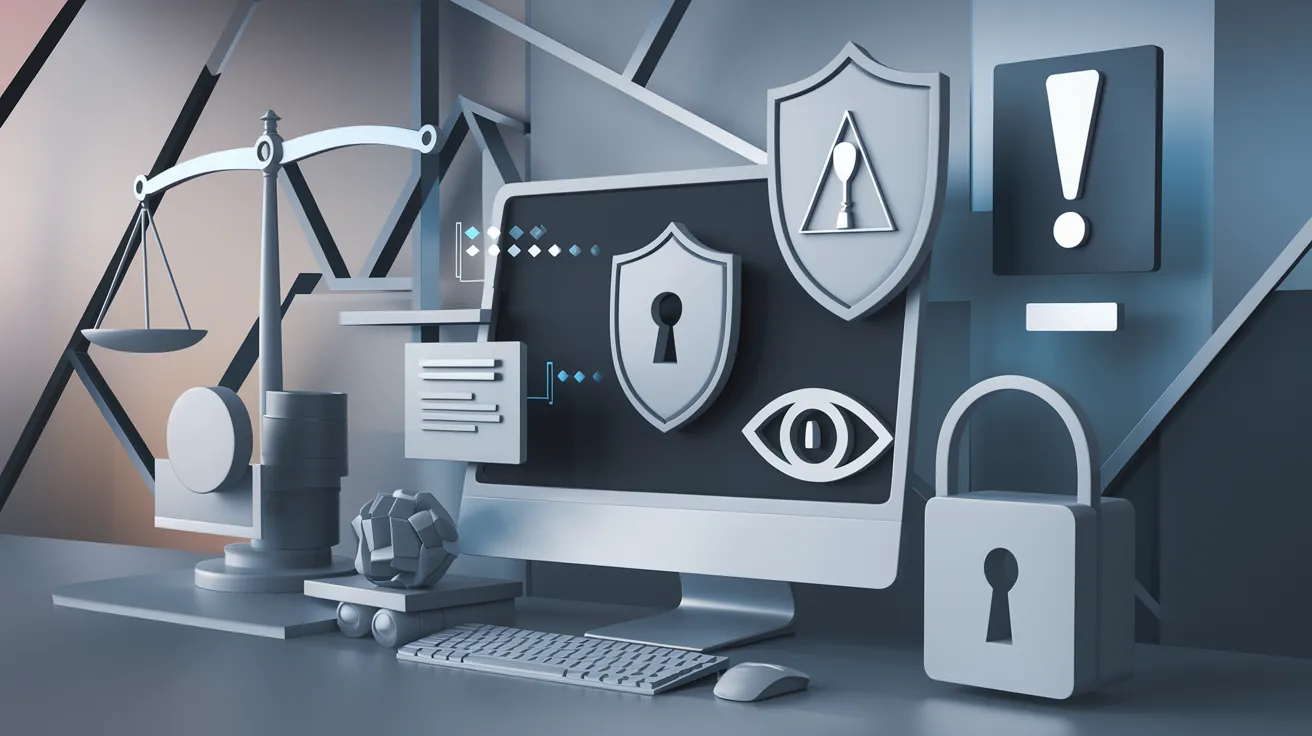
When it comes to monitoring employees, ensuring their privacy should be the first priority.
Sometimes, monitoring can infringe on the employee's personal space if it goes too far.
Excessive data collection and monitoring both online and offline can make the employees feel uncomfortable. Most often, it can even lead to potential legal issues.
May Harm to Employee Morale
It’s obvious that overstepping employee monitoring can harm employee morale.
Constant and intrusive monitoring gives a hit to their job satisfaction. This lack of autonomy often breeds disengagement and lower motivation toward the job.
Happy employees are productive employees. And here, excess employee monitoring can backfire on overall performance.
Raise Stress and Anxiety
Employee well-being and mental health are a must to ensure enhanced productivity.
Excessive monitoring can create stress and anxiety among employees. When they know they’re being constantly monitored, it creates a sense of pressure.
Moreover, it can also lead to fear of repercussions, even for minor mistakes.
Data shows that about 56% of employees who experience monitoring feel stressed and tensed at work compared to those 40% who are not being monitored.
Potential Risk of Losing Employee Trust
Employee monitoring can create a culture of distrust if you fail to handle it professionally. Trust vs. monitoring is such a crucial thing.
Employees expect clear communication and assurance of their rights. Anyhow, if they feel their employee rights have been compromised for monitoring, it can lead to skepticism.
Moreover, some employees may feel that they’re not being trusted to manage their time and workloads effectively, resulting from constant scrutiny.
Surprisingly, about 43% of US workers say so due to surveillance practices.
Krista Hare,
Founder of Hare Hires.
May Harm the Company's Culture
Inappropriate employee monitoring approaches can dramatically alter the culture of the company. It can transfer a workplace into a hostile environment.
Employees may feel micromanaged and undervalued. Constant and unfair staff monitoring leads to a lack of collaboration and open communication.
That’s no secret: strong companies thrive on trust, and too much monitoring undermines it.
Get Started With Apploye for Effective Employee Monitoring.
How Much Employee Monitoring is Too Much?
Employee monitoring is an act of balance. Excessive monitoring can damage workplace trust, and too little causes employee productivity issues.
It’s true that employers can monitor work-related anything an employee is doing during work hours and it's legal.
But this makes me research then how much of that won’t be too much and will be legal. Let me give an overview of what I’ve found about what laws say regarding employee surveillance boundaries.
Federal laws allow employers to monitor their employees at work. The Electronic Communications Privacy Act (ECPA) of 1986 and privacy laws have put some restrictions to ensure privacy-friendly monitoring.
The ECPA prevents employers from intentionally intercepting employee conversation emails and calls. Violation of this law can result in civil and criminal penalties.
In France, an Amazon warehouse manager was fined around $35 million for excessively intrusive employee monitoring in 2024.
However, there are some exceptions. For example
- Consent exception: Employers can monitor the employees if they agree to it. Such as using employee monitoring apps.
- Business purpose exception: It permits the employer to monitor oral and electronic communication if they have valid business reasons.
Laws regarding workplace surveillance Laws regarding workplace surveillance mainly focus on consent. Legal experts advise employers to inform employees about monitoring and get written consent.
Lewis Maltby, president of the National Workrights Institute,says that it matters where the monitoring happens.
According to him, employers can legally place microphones in the office to listen to the workers. But they can’t place the microphones in places like cafeterias, locker rooms, or bathrooms where employees talk about personal matters.
Here are some key state-specific laws on employee monitoring.
So, all in all, for employee monitoring, you need to find out the best approach that perfectly balances legally and ethically.
Further Read: 20 Time Tracking Best Practices Guide
How Should You Approach Monitoring Your Employees?
Of course, no one likes the idea of being watched. However, you can minimize the fallout by strategically approaching your employees to monitor.
Surely, you trust your team. So, it’s important to clarify the ‘why’ behind monitoring to ensure transparency.
My recommendation? Just follow up on the below HR best practices for strategic and ethical employee monitoring.
- Jason Yau
Data scientist at Instagram
Be Upfront and Specific
First off, be specific and clear to your employees about the ‘What’, ‘Why’, and ‘How’ of monitoring to avoid paranoia.
This helps to prevent angst among staff members. You should be transparent about monitoring and have clear policies so as not to encounter any uncomfortable or negative situations.
What I do is that I include policies in the employee handbook and cover them in their new-hire orientation.
It’s also a good idea to have written employee consent for monitoring during the onboarding process.
Make Sure What You’re Doing is Fair
A fair monitoring practice is to track their activity only when you have a fair reason and do it in a fair way.
You know the staff will be more understanding of ethical workplace policies if they recognize what you’re doing is right. It’s important to show them your monitoring is just fair, not intrusive.
Let’s get it with an example. Security monitoring- that’s accepted and also very beneficial.
To avoid the issue, you should display clear signage about camera use in your company. This way, it’ll deter theft and, at the same time, will ensure transparency.
Outline the Guidelines for Personal Use
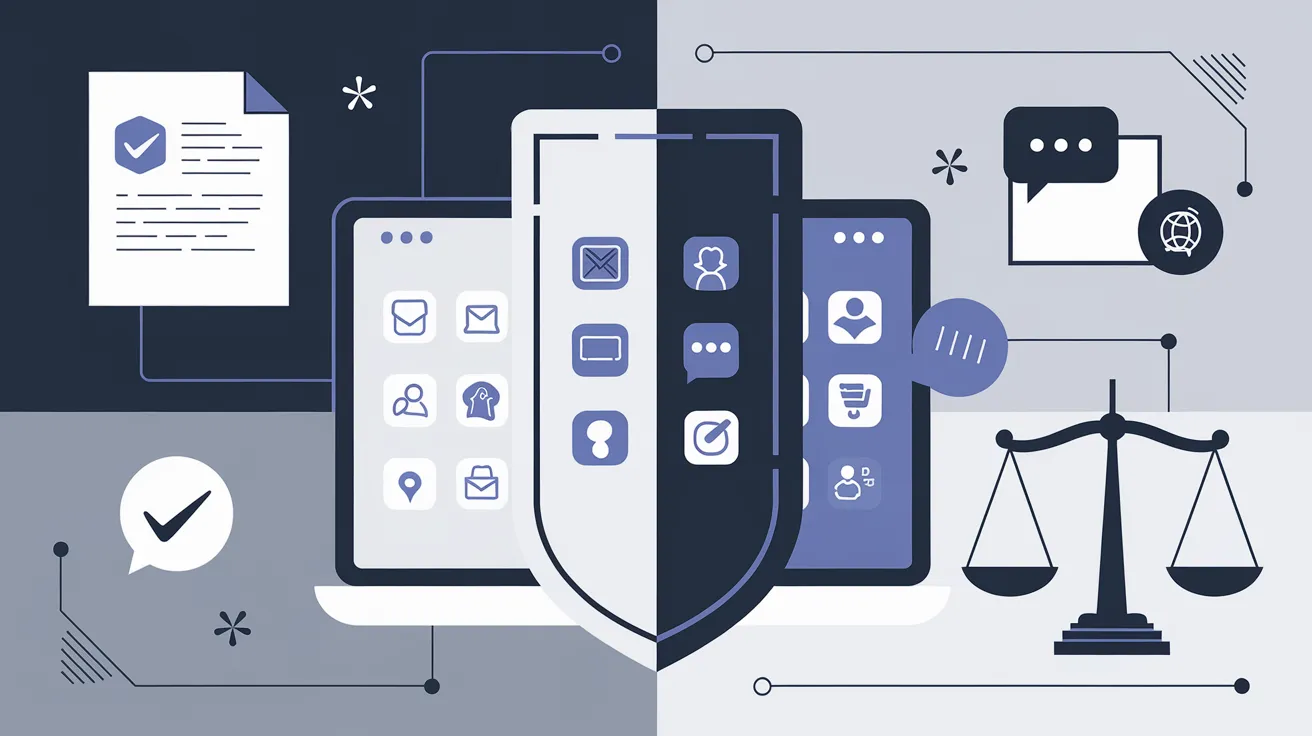
As for the next one, you should set clear boundaries when it comes to personal use of company resources.
Your employees need to understand that some personal use can be acceptable. But of course, they shouldn’t overstep.
Employees should expect little or no privacy at all on the company device. Businesses own them and have the legal right to monitor them under the ECPA.
Matt C. Pinsker
A former adjunct professor of homeland security and criminal justice at VCU
Moreover, if the employees use company computers for personal use, there’s a chance you will learn the information you should not.
For example, your employee makes a doctor's appointment on the company computer. Your employee monitoring software will record this, and you may accidentally learn the sensitive information.
Thus, you’ll violate the Americans with Disabilities Act. So, must set clear rules on personal computer devices to avoid legal issues.
Always Be Mindful of Your Responsibilities
It’s the employer's responsibility to monitor the employees fairly and in a way that respects their autonomy. To me, trust is what matters most here.
It’s your right to monitor your company property during work hours. But it also falls under your responsibility to avoid monitoring during off-hours or for personal use.
In a word, understand our responsibilities for legal workplace monitoring and prevent possible legal issues.
You should create an Accele Use Policy about employee monitoring and discuss it with your employees. It’ll include all the details like what restrictions, BYOD (bring your own device), software installation rules, consequences for misuse, and so on.
Create clear monitoring policies and maintain with Apploye!
You May Consider Alternatives
As for my last suggestion, you can consider alternatives. If you think employee monitoring isn’t your deal, you can think about the less intrusive ways to achieve the same results.
I’ve tried it out and got good enough results-
- Train your staff firsthand how you expect them to work.
- Carry out a regular performance review to encourage the desired work behavior.
In case you feel monitoring will be right, you can even consider whether you should limit monitoring in particular areas of your business.
This way, you avoid one-size-fits-all solutions.
Further Read: 15 Best Employee Monitoring Software
Final Words
I must say workplace monitoring isn’t just about spotting wayward employees.
It, in fact, ensures your employees understand your expectations and that you’re actively paying attention within your company. But you need to balance this with respect for employee rights and workplace ethics.
Just ensure employer best practices and implement Apploye to be free from all legal and ethical hassle. Use an effective monitoring approach and enhance productivity with ease!
FAQs
Is it legal to monitor your employees?
Yes, in most cases it is legal to monitor your employees. However, you need to follow the employee surveillance laws and privacy regulations to ensure workplace compliance. Moreover, you should also inform your employees about the place monitoring.
Who is responsible for monitoring employees?
Generally, monitoring employees is one of the employer's responsibilities. He, with the involvement of the Human Resources Department, ensures compliance with the legal regulations, HR policies, and thus workplace security.
Are the employers required to inform employees about monitoring?
Yes, the employer is required to inform employees about monitoring. In most jurisdictions, employee consent and transparency in monitoring are essential under workplace regulation.

